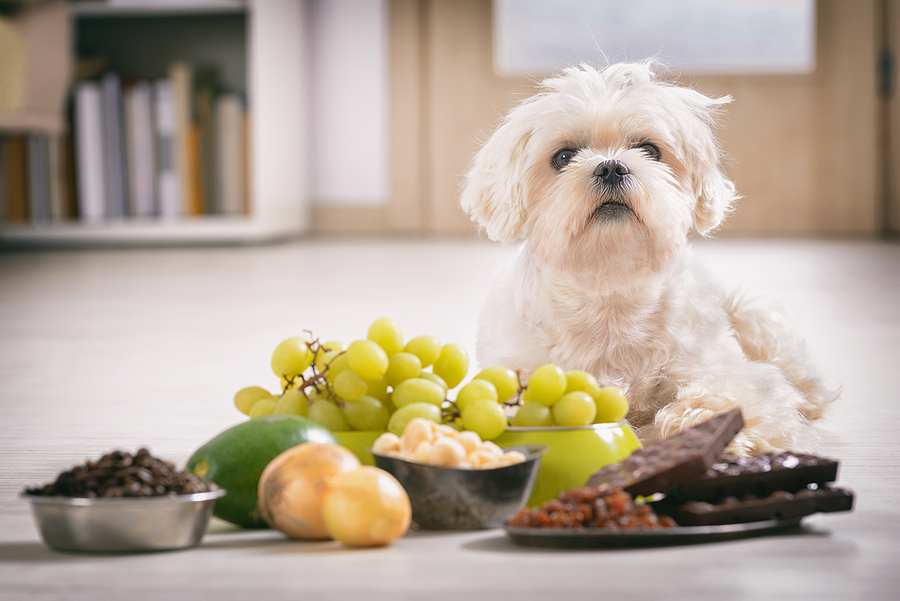There are around 232,000 cases of pet poisoning in the US annually. Sadly, there are many things lurking in our homes that are common pet toxins.
As a result, people tend to lean more towards natural remedies. But, believe it or not, some of the natural remedies, foods, and herbs you have are also toxic to our dogs.
How do we know what is safe and what isn’t? Below we’ve compiled a list of pet toxins you likely have hiding in plain sight.
1. Essential Oils
Contrary to some information, many essential oils are perfectly safe for dogs and pet care. However, the oils need to be diluted when used topically and have good ventilation with a diffuser.
However, some oils can cause significant harm to your dog and pet environment. Here’s a list of a few to stay away from topically or in a diffuser:
- Citrus
- Pine
- Peppermint
- Sweet Birch
- Cinnamon
- Anise
- Yarrow
- Clove
- Juniper
- Thyme
- Tea Tree
Common pet oil toxins can be avoided by diluting essential oils, whether on yourself or your dog. However, you may inadvertently cause skin irritations, respiratory problems, GI upset, weakness, and seizures. In addition, liver and kidney damage can occur in rare cases when the oil is absorbed by the skin and into the bloodstream.
2. Herbs and Plants
Before you made a trip to the local nursery, try to have a good sense of the herbs and plants that may be harmful to your trusty sidekick. Here are some of the most common ones.
Rhododendrons
Rhododendrons are a pretty flowering bush. Many people enjoy the look of this azalea flowering shrub. However, this beautiful bush is one of the toxic plants that may cause diarrhea, vomiting, a coma, and possibly even death.
Tulips and Daffodils
Tulips and daffodils are lovely and add so much beauty to the scene. However, these plants may cause difficulty breathing, severe stomach problems, and increased heart rate if a dog eats the bulb.
Sago Palms
Sago palms are beautiful and offer great shade. But after eating just a few seeds from a sago palm, your dog may begin suffering seizures, vomiting, and have liver failure.
Apple Trees
Apple trees are an excellent addition to your yard if you live in the north. However, the seeds, stems, and leaves contain harmful substances to your dog.
Contact your vet if you notice your dog’s pupils dilating, difficulty breathing, brick red mucous membranes, panting, or shock after your dog has played in the yard.
3. Harmful Foods
Your dog may be the most adorable thing sitting there pretty while begging for some food from your snack or lunch. But are you sure it is safe to share?
Chocolate
Chocolate is a delightful treat for us but a poison to our dogs. It can cause diarrhea, vomiting, seizures, hyperthermia, hyperactivity, and cardiac arrhythmias. Baking chocolate can be lethal with the ratio of less than one ounce per 10 pounds of dog.
Grapes and Raisins
Grapes and raisins may seem harmful enough. But really, they can cause your dog’s kidneys to fail. Even just a tiny amount can cause issues for some dogs.
Macadamia Nuts
Macadamia nuts are very attractive to dogs, but please avoid giving them this treat. These pet food toxins can cause overheating, weakness, and vomiting after consuming them.
Avoid Accidents With Pet Toxins
As a pet owner, you want to avoid pet toxins. But, with essential oil remedies sweeping the nation, be sure to do your research on what’s safe for your dog to prevent accidents.
While decorating your yard, put pet safety first and double-check which herbs and plants to keep out of reach of your pet environment.
When the difficult day comes and your pet ultimately passes, trust Midlands Pet Care to help you honor and memorialize your beloved furry companion. Reach out today to speak with us about how we can take away some of the hardship during this time.

